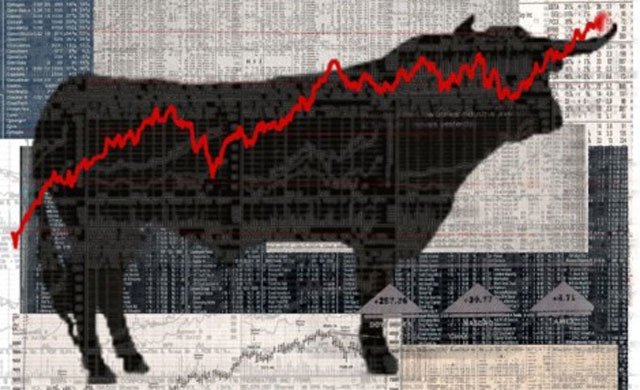There’s a saying on Wall Street: Don’t mistake luck for skill in a bull market. When prices climb for weeks or months, even new investors can feel like market wizards. But history shows that bull runs—while powerful—are never permanent.

The S&P 500 officially entered a new bull phase on January 19, 2024, closing above its January 2022 peak. That marked the latest chapter in a market history filled with rallies, corrections, and lessons for investors.
Here are ten essential insights into how bull markets work—and why understanding them matters:
1. Where the Term Comes From
Most believe it’s tied to animal behavior: bulls thrust their horns upward (rising prices), while bears swipe downward (falling markets).
2. What Defines a Bull Market
The widely used benchmark is a 20% gain from a recent low in a major index like the S&P 500.
3. How Long They Last
Since 1932, the average bull market has run about 3.8 years, with the longest—2009 to 2020—lasting over a decade.
4. How Common They Are
There have been 26 bull markets since 1928, averaging gains of 112%—far outweighing typical bear market losses.
5. Early vs. Late Leaders
Early rallies often favor financial, consumer, and industrial stocks. Later stages tend to see energy and materials outperform.
6. The Current Rally’s Star Players
Tech giants—the “Magnificent 7”—have been leading since 2023, with huge gains outpacing the broader market.
7. Top Performers So Far
Nvidia, Meta Platforms, and Royal Caribbean have been among the S&P 500’s biggest winners in this bull phase.
8. When Optimism Turns To Bubbles
History shows bull markets can morph into speculative frenzies, from the Dutch tulip mania to the dot-com bubble.
9. Secular vs. Cyclical Bulls
Secular bulls can last decades, with smaller bears in between—like the 1982–2000 run, which gained over 1,200%.
10. How They End
Often triggered by inflation, high interest rates, or recession fears—though markets sometimes keep climbing despite them.
Bottom line: Bull markets create opportunities, but they’re not invincible. Savvy investors use them to build wealth while staying mindful of risks. Understanding their patterns helps you ride the wave—and know when it might be time to step off.
Learn from market wizards: Books to take your trading to the next level


 Hot Features
Hot Features












